Gaining weight with a high metabolism can feel like an uphill battle. Many envy a fast metabolism, but for those wanting to put on pounds, learning how to gain weight with a high metabolism can be challenging.
Your body burns calories quickly, making it hard to store them and see results. But don’t worry—with the right approach, you can overcome this hurdle.
This guide provides actionable strategies like choosing calorie-dense foods, optimizing meal timing, and incorporating specific exercises to support healthy weight gain. It’s not just about eating more but eating smarter.
Don’t let your metabolism control your progress, start now with these effective techniques and get closer to your goals with every step!
2. Understanding Your Metabolism
2.1. What is Metabolism?
Metabolism is the driving force behind every function in your body, converting the food you eat into the energy needed for survival and activity.
This intricate process, involving countless biochemical reactions, powers everything from breathing and digestion to thinking and muscle movement.
At the heart of metabolism lies your Basal Metabolic Rate (BMR), which refers to the number of calories your body requires at rest to maintain essential functions like blood circulation, cellular repair, and nutrient absorption.
BMR, or Basal Metabolic Rate, varies for each person and depends on several key factors. Age is one factor, as metabolism generally slows down with age. Sex also influences BMR, with men typically having a higher BMR due to greater muscle mass.
Genetics play a role as well, setting each person’s natural metabolic pace. Body composition is another factor, as muscle tissue burns more calories than fat.
Lastly, environmental temperature can affect BMR, as colder climates may slightly increase metabolic activity to generate body heat. These variables create a unique metabolic profile for each individual, influencing how your body uses and stores energy.
2.2. The Role of Metabolism in Weight Management
Metabolism plays a vital role in managing body weight, and differences in metabolic rates help explain why people respond differently to the same food intake.
If you have a fast metabolism, your body burns calories quickly, making it harder to create the caloric surplus needed for weight gain, even with a high intake of food.
This rapid calorie usage means that extra energy from food is utilized quickly, requiring more effort to maintain or increase weight.
On the other hand, a slower metabolism uses fewer calories for the same functions, which can make gaining weight easier but may lead to excess weight when calorie intake isn’t carefully managed.
For individuals with a slow metabolism, achieving weight loss goals can require more effort as fewer calories are burned at rest.
Understanding your unique metabolic rate is essential in designing an effective weight gain strategy. Knowing how your body burns energy helps you tailor your diet and activity levels to create the conditions necessary for healthy, sustainable weight gain or management.
3. The Foundations of Gaining Weight
3.1. Caloric Surplus: The Starting Point
The cornerstone of weight gain is achieving a caloric surplus. This means consuming more calories than your body expends in a day.
While it sounds simple, for those with a high metabolism, this requires a strategic and mindful approach to food intake.
A daily surplus of 500-1,000 calories can lead to a healthy and gradual weight gain of about 1-2 pounds per week, striking a balance between gaining muscle mass and minimizing fat gain.
3.2. Calculating Your Caloric Needs
Determining your daily caloric needs is essential for setting up a surplus. You can use online BMR calculators as a starting point, inputting your height, weight, age, and activity level to estimate how many calories you burn each day.
Remember, these calculators provide estimates; you may need to adjust your intake based on your progress and how your body responds.
4. Nutritional Strategies for Weight Gain
4.1. The Macronutrients: Protein, Carbs, and Fats
Understanding and balancing your intake of the three macronutrients — proteins, carbohydrates, and fats — is crucial for healthy weight gain.
Proteins: Essential for muscle repair and growth. Aim for 1.0 to 1.6 grams of protein per kilogram of body weight.
High-quality sources include lean meats, fish, eggs, dairy products, and legumes. For those struggling to meet their protein needs through food alone, consider incorporating a protein supplement. [Affiliate link for high-quality protein supplements]
Carbohydrates: They are your body’s main energy source. Focus on complex carbohydrates, such as whole grains, fruits, and vegetables, which provide energy alongside vital nutrients and fiber.
Fats: While fats are calorically dense, focus on healthy fats from sources like avocados, nuts, seeds, and olive oil. These fats not only help you meet your calorie goals but also support cell function and nutrient absorption.
In-Depth Table: Macronutrient Sources for Weight Gain
|
Food Item |
Macronutrient Category | Serving Size |
Approx. Calories |
|
Chicken breast (skinless) |
Protein |
100g |
165 |
|
Lean beef (95% lean) |
Protein | 100g | 137 |
|
Greek yogurt (full-fat) |
Protein |
1 cup |
220 |
|
Tofu (firm) |
Protein | 100g |
144 |
|
Eggs |
Protein | 1 large |
70 |
|
Quinoa |
Carbohydrates | 1 cup cooked |
222 |
|
Sweet potatoes |
Carbohydrates | 100g | 86 |
|
Brown rice |
Carbohydrates | 1 cup cooked | 216 |
|
Oats |
Carbohydrates | 1 cup cooked |
158 |
|
Bananas |
Carbohydrates | 1 medium |
105 |
|
Avocado |
Fats | 1 whole |
322 |
|
Nuts (almonds) |
Fats | 1 oz | 164 |
|
Olive oil |
Fats | 1 tablespoon |
119 |
|
Seeds (chia seeds) |
Fats | 1 oz |
138 |
|
Dark chocolate (70-85% cacao) |
Fats | 1 oz |
170 |
Table Notes:
- Protein Sources: High-quality protein is crucial for muscle repair and growth. This list includes both animal and plant-based sources to accommodate various dietary preferences.
- Carbohydrate Sources: Complex carbohydrates provide sustained energy. These foods are also rich in fiber and other nutrients.
- Fat Sources: Healthy fats are calorie-dense and essential for overall health. They contribute to a higher caloric intake without significantly increasing the volume of food consumed.
How to Use This Table:
- Identify Your Daily Caloric Needs: Use a BMR calculator and adjust based on your activity level to find your maintenance calories. Aim for a surplus of 500-1,000 calories for weight gain.
- Mix and Match Foods: Select foods from each macronutrient category to create balanced meals throughout the day.
- Track Your Intake: Consider using a food diary or an app to ensure you’re meeting your caloric and macronutrient goals.
4.2. Choosing the Right Foods
Opt for whole, unprocessed foods that offer a blend of proteins, carbohydrates, and fats to ensure a balanced diet.
Nutrient-dense foods not only help in gaining weight but also contribute to overall health, providing vitamins, minerals, and other nutrients essential for optimal body function.
4.3. Protein: Building Blocks of Muscle
Protein is particularly important for those looking to gain weight without adding unhealthy fat. It supports the building of lean muscle, especially when paired with resistance training.
Consider meals that combine protein with carbohydrates and fats to enhance muscle synthesis and recovery.
For instance, a post-workout shake with whey protein, a banana, and a spoonful of peanut butter can be an excellent way to promote muscle growth.
4.4. The Power of Carbs and Fats
Incorporating a balanced mix of carbohydrates and fats into each meal ensures a sustained energy supply and helps achieve the necessary caloric surplus for weight gain.
Remember, while it’s important to focus on healthy sources, occasional indulgences can be part of a balanced approach to gaining weight, especially for those with a high metabolic rate struggling to meet their caloric needs.
5. Dietary Adjustments and Eating Habits
5.1. Increasing Meal Frequency
For those with a high metabolism, consuming enough calories throughout the day can be a challenge. One effective strategy is to increase the number of meals and snacks.
Instead of three large meals, aim for 5-6 smaller, nutrient-rich meals spread evenly throughout the day. This approach can help ensure a continuous intake of calories, making it easier to achieve and maintain a caloric surplus.
Consider adding calorie-dense snacks like nuts, cheese, or yogurt between meals to further boost your calorie intake.
5.2. Energy-Dense Foods for Easy Calories
Incorporating energy-dense foods into your diet is crucial for meeting higher calorie needs.
These foods provide a significant amount of calories in a small volume, making it easier to consume more calories without feeling overly full.
Focus on including items such as dried fruits, nuts, peanut butter, avocados, whole milk, and cheese.
Additionally, cooking with oils like olive or coconut can add healthy fats and extra calories to your meals without increasing bulk.
5.3. Enhancing Meal Enjoyment
Eating for weight gain, especially when you’re not used to consuming large amounts of food, can sometimes feel like a chore.
To make meals more palatable and enjoyable, experiment with flavors, spices, and textures. Preparing meals that look and taste appealing can significantly enhance your eating experience.
For instance, adding herbs and spices not only boosts flavor without adding extra calories but can also increase your appetite.
Remember, the goal is to enjoy your food, making it easier to stick to a high-calorie diet in the long run.
6. Exercise for Optimal Weight Gain
6.1. The Importance of Resistance Training
While diet plays a critical role in gaining weight, exercise, particularly resistance training, is equally important.
Engaging in strength training exercises like weightlifting can help ensure that the excess calories are funneled into muscle growth rather than fat.
Aim for a routine that targets all major muscle groups at least 2-3 times per week, focusing on compound movements such as squats, deadlifts, and bench presses to maximize muscle gain and hormonal response.
6.2. Balancing Cardiovascular Exercise
Cardiovascular exercise is essential for overall heart health and endurance but can counteract weight gain efforts by burning a significant number of calories.
To maintain a balance, limit cardio sessions to 2-3 times per week, focusing on moderate-intensity activities like brisk walking or light jogging.
Alternatively, consider high-intensity interval training (HIIT) for a shorter, more efficient workout that can minimize muscle loss and keep your metabolism fired up without significantly impacting your calorie surplus.
Step-by-Step Exercise Guide for Weight Gain
This guide focuses on compound exercises, which are most effective for building muscle due to their ability to target multiple muscle groups simultaneously.
These exercises also stimulate the production of anabolic hormones, which can aid in muscle growth and weight gain.
1. Squats
Steps
- Stand with your feet shoulder-width apart, toes slightly pointed out.
- Keeping your back straight and chest up, lower your body as if you are sitting back into a chair, bending at the knees and hips. Ensure your knees remain in line with your feet.
- Lower down until your thighs are at least parallel to the floor.
- Push through your heels to return to the starting position.
- Frequency: 3 sets of 6-12 reps.
2. Deadlifts
- Stand with your feet hip-width apart, with a barbell in front of your shins.
- Bend at your hips and knees, and grip the barbell with hands just outside your legs.
- Keeping your back straight, lift the barbell by straightening your hips and knees to a standing position.
- Lower the barbell back to the ground, maintaining control.
- Frequency: 3 sets of 6-12 reps.
3. Bench Press
- Lie back on a bench with a barbell racked above your chest level.
- Grip the barbell slightly wider than shoulder-width, and unrack it by straightening your arms.
- Lower the barbell to your chest, keeping your elbows at a 45-degree angle.
- Press the barbell back up to the starting position, fully extending your arms.
- Frequency: 3 sets of 6-12 reps.
4. Pull-Ups
- Grab the pull-up bar with a grip wider than shoulder-width, palms facing away from you.
- Pull your body up until your chin is over the bar, focusing on engaging your back muscles.
- Lower yourself back down with control to the starting position.
- Frequency: 3 sets of as many reps as possible.
5. Overhead Press
- Stand with feet shoulder-width apart, holding a barbell at shoulder height with your hands just outside your shoulders.
- Press the barbell upward until your arms are fully extended overhead.
- Lower the barbell back to the starting position at your shoulders.
- Frequency: 3 sets of 6-12 reps.
Implementing the Guide
Start with weights that allow you to complete the sets and reps with good form but are challenging enough to fatigue the muscles by the last rep.
Gradually increase the weight as you become stronger. Rest for 1-2 minutes between sets to allow for recovery.
7. Lifestyle Considerations
7.1. The Impact of Sleep on Weight Gain
Adequate sleep is crucial for weight gain and muscle recovery. During sleep, your body undergoes most of its growth and repair, releasing growth hormones essential for muscle development.
Aim for 7-9 hours of quality sleep per night, establishing a regular sleep schedule to enhance sleep quality and support recovery and growth.
7.2. Managing Stress for Better Results
Managing stress is crucial not just for mental health but also for physical well-being, especially when trying to gain weight with a high metabolism.
Stress can affect your appetite, digestion, and the way your body processes and stores nutrients. Here’s a step-by-step guideline to effectively manage stress for better weight gain results:
1: Identify Stress Triggers
- Keep a journal for a week or two to note when you feel most stressed and what factors contribute to it. Identifying triggers is the first step in managing stress.
2: Incorporate Regular Physical Activity
- Engage in regular, moderate exercise. Activities like walking, swimming, or yoga can significantly reduce stress levels and improve your overall mood and well-being.
3: Practice Mindfulness and Relaxation Techniques
- Allocate time daily for relaxation techniques such as deep breathing exercises, meditation, or progressive muscle relaxation. Even a few minutes can make a difference.
4: Establish a Consistent Sleep Routine
- Prioritize getting 7-9 hours of quality sleep each night. Establish a calming pre-sleep routine and try to go to bed and wake up at the same times daily.
5: Nurture Social Connections
- Spend time with friends and family who support and uplift you. Sharing your concerns with others can provide relief and strengthen your resilience against stress.
6: Set Realistic Goals and Priorities
- Break down your tasks into manageable steps and set realistic deadlines. Learn to say no to requests that would create excessive stress in your life.
7: Practice Positive Self-talk
- Challenge and replace negative thoughts with positive ones. Remind yourself of your strengths and accomplishments.
8: Seek Professional Help When Needed
- If stress becomes overwhelming and difficult to manage on your own, consider seeking help from a mental health professional. Counseling or therapy can provide effective strategies for managing stress.
9: Engage in Hobbies and Activities You Enjoy
- Make time for hobbies and activities that bring you joy and relaxation. Whether it’s reading, gardening, playing an instrument, or painting, doing things you love can reduce stress levels.
10: Limit Stimulants
- Reduce the intake of stimulants such as caffeine and sugar, especially in the evening, as they can increase stress levels and impact sleep quality.
Implementing the Guide
Start by incorporating one or two steps into your daily routine, and gradually add more as you become comfortable.
Managing stress is a personal journey, and what works for one person may not work for another. Experiment with different techniques to find what best helps you reduce stress.
8. Supplementing Your Diet for Weight Gain
8.1. Role of Supplements
While whole foods should form the foundation of your diet, supplements can play a crucial role in helping you meet your caloric and nutritional needs, especially on days when achieving a caloric surplus through food alone is challenging.
Supplements like protein powders, mass gainers, and meal replacement shakes can offer a convenient and efficient way to ingest high-quality nutrients and calories on the go.
- Protein Supplements: A staple for those looking to gain weight and muscle. Whey protein, casein, and plant-based proteins can help you meet your daily protein requirements, crucial for muscle repair and growth.
Mass Gainers: These are calorie-dense supplements designed to help individuals gain weight. They typically contain a mix of proteins, carbohydrates, and fats, along with vitamins and minerals, making them an excellent option for a quick calorie boost.
8.2. Recommended Supplements
When selecting supplements, it’s important to choose high-quality products that align with your health goals and dietary preferences.
Always read labels carefully to understand the nutritional content and ingredient list. Here are some recommended supplements that can support weight gain efforts:
- Creatine Monohydrate: A well-researched supplement known for enhancing strength, power, and muscle volume. It’s beneficial for those engaged in resistance training.
- Omega-3 Fatty Acids: While not directly related to weight gain, omega-3 supplements can support overall health, including heart health and inflammation control, which is vital for recovery and muscle growth.
9. Practical Tips and Tricks
9.1. Quick Tips for Increasing Calorie Intake
Achieving a calorie surplus is easier with some smart dietary strategies:
- Add Nut Butters: Incorporating nut butters into your diet is an easy way to increase your calorie and fat intake. Add them to smoothies, oatmeal, or yogurt.
- Choose Calorie-Dense Snacks: Snacks like trail mix, granola, and avocados are not only nutritious but also high in calories, helping you to meet your daily goals.
9.2. Avoiding Common Pitfalls
Common mistakes can derail your weight gain efforts:
- Skipping Meals: Consistency is key in meeting your calorie goals. Use reminders or set a schedule to ensure you’re eating regularly.
- Not Tracking Intake: Initially, tracking your food intake can be incredibly helpful in understanding where you’re at and what adjustments need to be made to meet your calorie surplus goals.
10. Setting Realistic Goals and Expectations
10.1 Understanding Weight Gain Timelines
Weight gain, much like weight loss, is a process that requires time and patience. A realistic goal is to aim for a weight gain of 0.5-1 pound per week.
Remember, rapid weight gain is often not sustainable and can lead to increased fat accumulation rather than muscle.
10.2. The Importance of Consistency
Consistency in both your diet and exercise regimen is the cornerstone of successful weight gain. It’s not about perfect days but rather about accumulation of effort over time.
Stay patient, adjust strategies as needed, and keep focused on your long-term goals.
Conclusion
Gaining weight with a high metabolism requires a multifaceted approach, focusing on a calorie-dense diet, strategic supplementation, consistent exercise routines, and healthy lifestyle habits.
Remember, every individual’s journey is unique, and what works for one person may not work for another.
Listening to your body, being adaptable, and maintaining a positive and patient outlook are essential components of your path to reaching your weight gain goals.
Are you ready to start your journey towards gaining weight with a high metabolism?
Explore our recommended supplements and nutritional aids to give you the boost you need. And always remember, the path to your ideal weight is a journey worth taking.
What will be your first step towards achieving your weight gain goals?
Recent Posts
- What is a Metabolic Workout? The Key to Fitness Success
- How To Boost Metabolism After 40: Reignite Your Vitality
- Metabolic Vitamins – Boosting Metabolism Naturally
- Endomorph Diet and Workout Plan: Unlocking Success


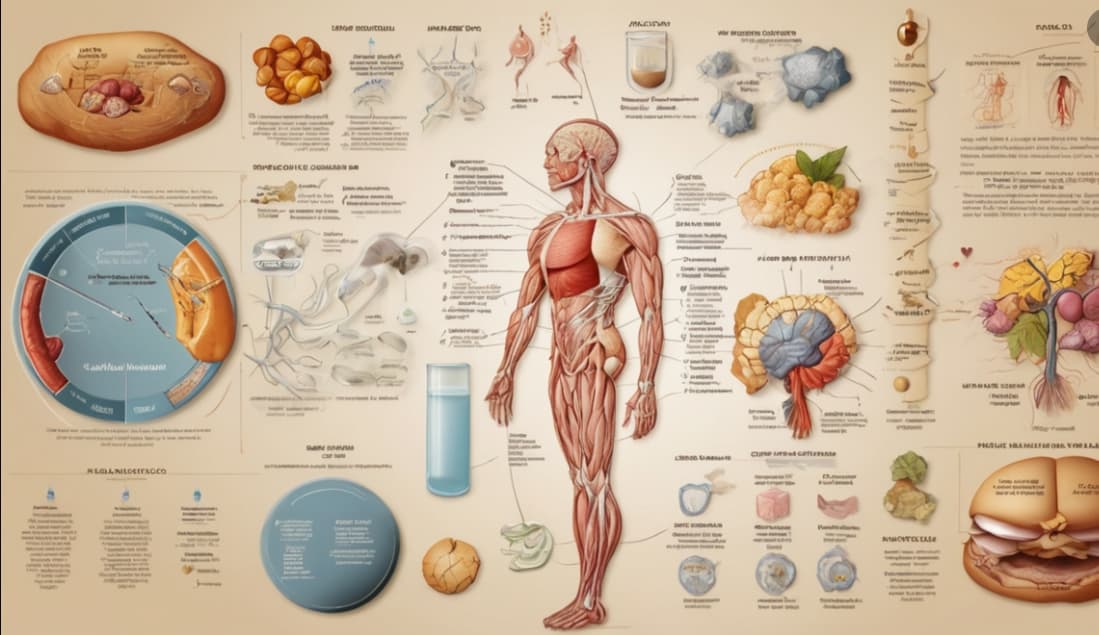
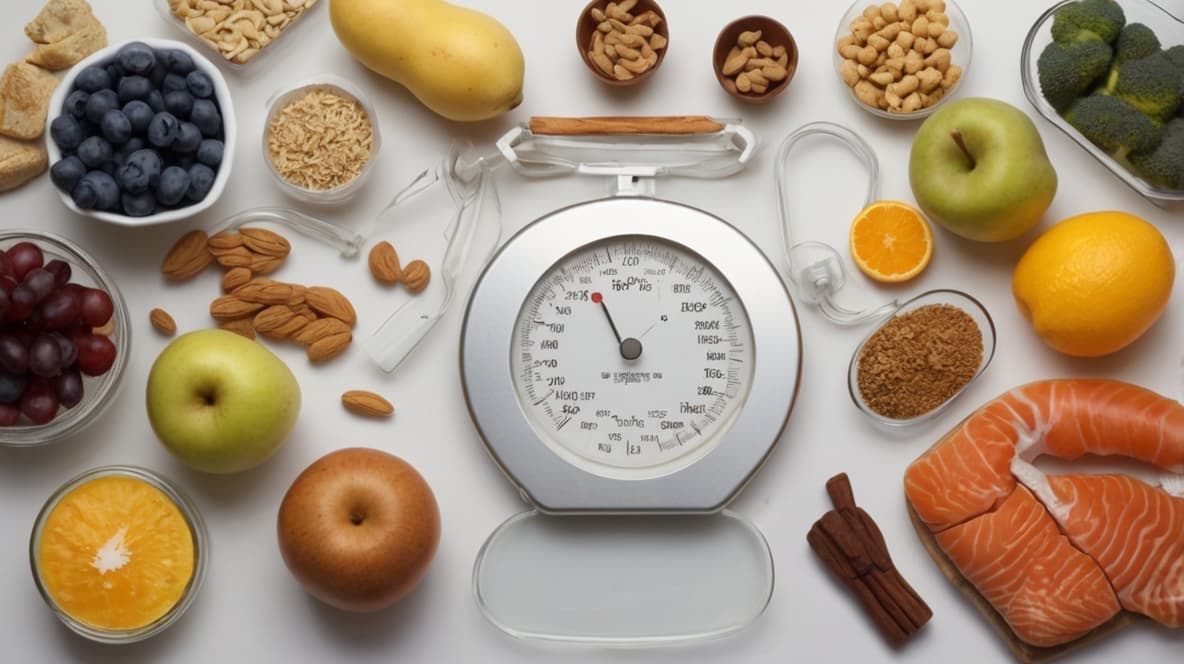
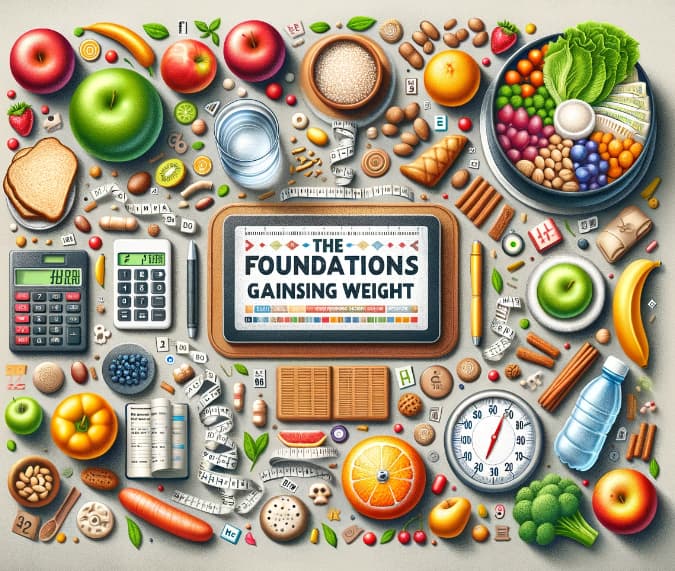
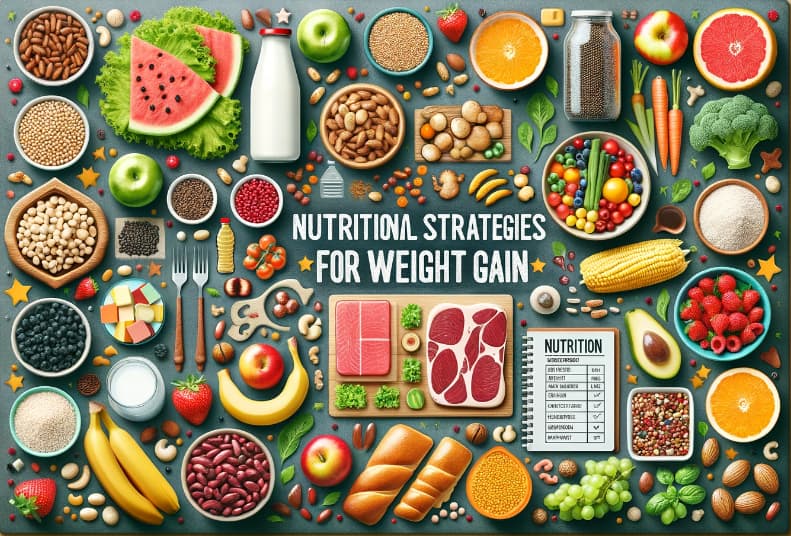




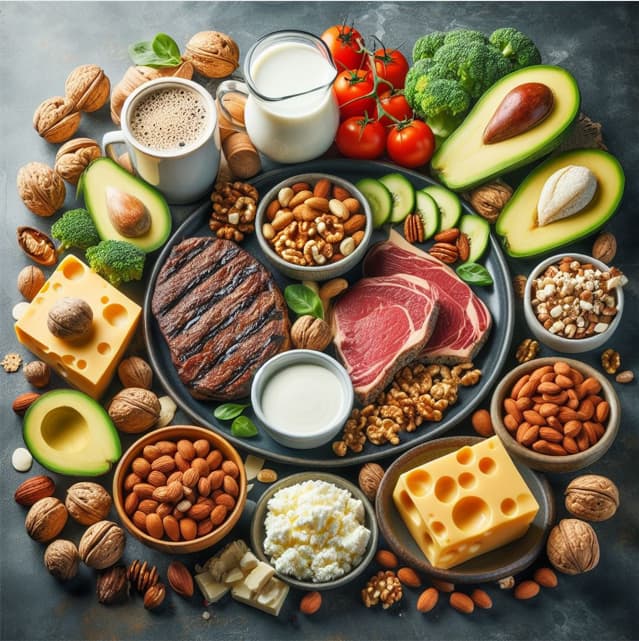
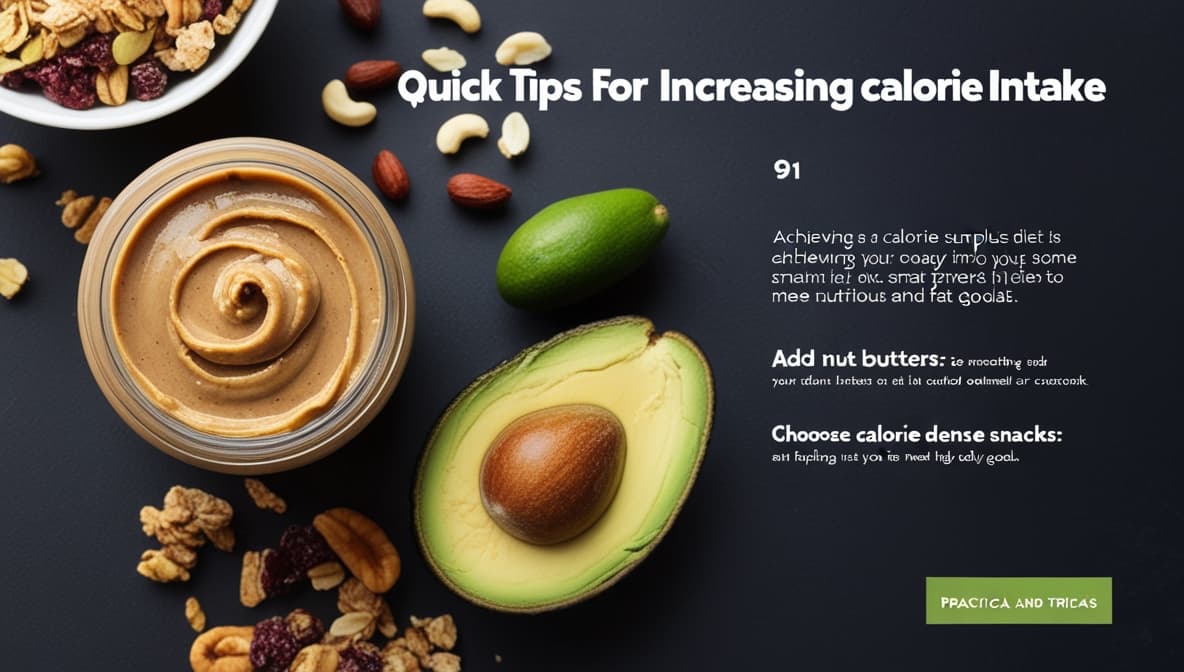


I know this site offers quality depending posts and additional
stuff, is there any other web site which provides such things in quality?
Thank you for the compliment! We’re so glad you find our content valuable. We aim to provide the best insights right here, but if you’re looking for something specific, let us know—we’d be happy to guide you!
Cheers,